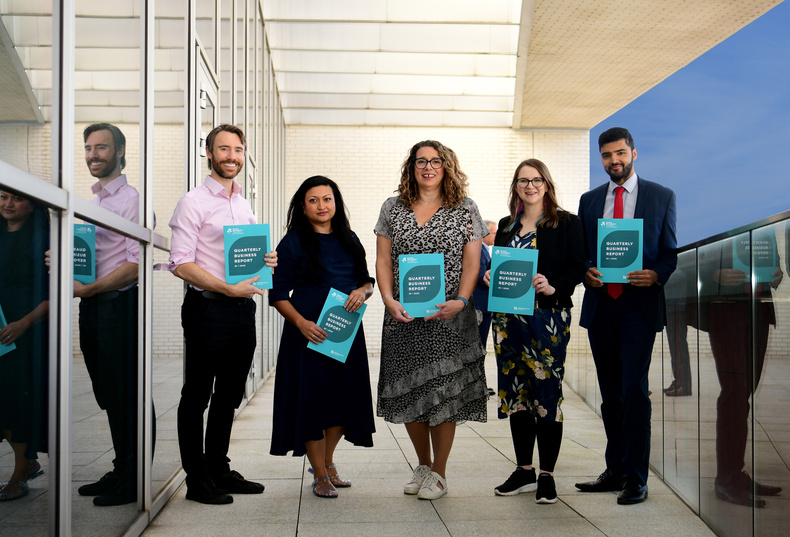School leavers face challenging workplace environment – Chamber launch event

The challenging workplace environment facing today’s school-leavers was outlined at the launch of the Q1 Quarterly Business Report issued by Greater Birmingham Chambers of Commerce in partnership with Birmingham City University.
Guests - including a range of local employers - at the event at the Curzon Building at BCU heard that training budgets were often being trimmed while many youngsters had never experienced work environments such as factories or offices.
Julie Stonall, director of Careers and Employability at BCU, told delegates: “They may have never set foot in an office or a factory, they have been through education, education, education.
“They are juggling more than just education on the back of a pandemic which seriously affected their development.”
She said the BCU’s number one priority for students was the “talent for tomorrow.” “We are trying to ensure graduates have the ability and the confidence to excel where their talents take them. As a university we are talking about future-proofing for graduates – these are for jobs that do not currently exist – the speed of technology is changing before our very eyes.”
Julie said the top skills in demand from employers were “a combination of human and technological skills. There is stuff that we can do that AI can never replace. We cannot be replaced, we have great human skills.”
She warned that the availability of work experience was vital for future generations. “The mindset of students cannot often comprehend the variety of the workplace.”
Mahfia Watkinson, Policy Manager (Insights), West Midlands Combined Authority, said:“Too many people are leaving school without the skills that you need to invest in your businesses.
“One of the things that employers tell us is that the skills system is difficult to navigate, it is confusing, it is not employer-friendly.
“We are working with universities and further education providers to improve access to skills provision that you need for your workforces. Since the pandemic, people are retiring early, workers are leaving their jobs.
“When businesses are struggling often the first thing to go is business training – they are battening down the hatches.”
However, she anticipated a brighter future with many more West Midland residents growing higher levels skills key to forecasted regional economic growth
In the construction sector, Stuart Murty, Head of Learning and Development at Balfour Beatty VINCI – who has worked on the joint venture HS2 project for four years – said: “We have wonderful opportunities to attract people into construction. The industry faces challenges for skills for the future – if you are working outside you cannot work for eternity in the same job.”
On the economy, the report had found that sales in the manufacturing sector had been hit by a “challenging environment” alongside the new US trade tariffs while business confidence amongst exporters had slipped.
But Raj Kandola, Director of External Affairs at the GBCC, said sales and profits forecasts remained in “healthy territory” – although he urged the Government to address urgent business needs following the recent rises in National Insurance.
Pictured from left to right: Stuart Murty, Mahfia Watkinson, Julie Stonall, Henrietta Brealey, and Raj Kandola



